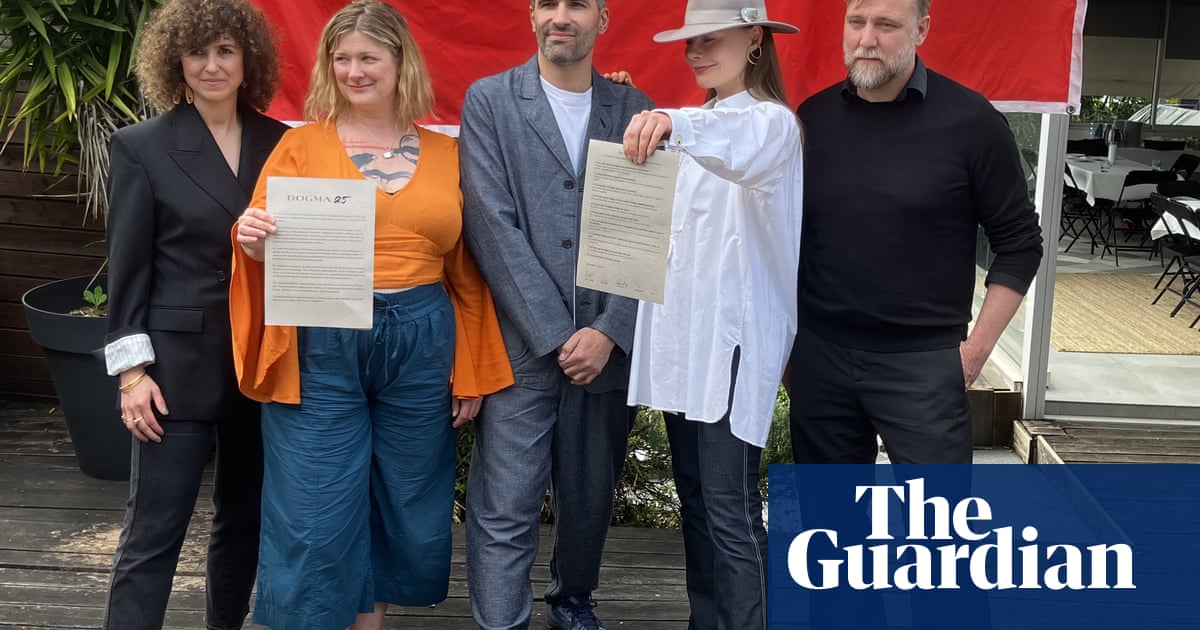The first thing a friend did when I told her the title of my book was laugh. “The Sex Lives of Married Women?” She asked. “You mean The No Sex Lives of Married Women.”
I laughed too. She wasn’t wrong – married people aren’t exactly known for their thriving sex lives. And I suspect the only couples reliably having sex must be the ones who have scheduled it into their Google calendars, probably in a shared folder alongside “Bunnings trip” and “remortgage review”.
I’m not that interested in how much sex people are or aren’t having in long-term relationships, but rather in how intimacy evolves over time and desire shifts after 10, 15, 20 years with the same person. How does it compete with exhaustion, children, finances and the never-ending pile of laundry?
We’ve all read stories about the electric beginnings of love: the butterflies, the charged glances, the can’t-keep-your-hands-off-each-other urgency. But what happens after the “happily ever after”? When the thrill of new love gives way to the hum of daily life, when the only sparks are from an overloaded power board, and the closest thing to foreplay is someone finally emptying the dishwasher?
Love changes. We all learn that sooner or later. I first encountered this concept in a university psychology course, where I studied the stages of love. Teenage me was drawn to the initial, obsessive stage – the kind of love that keeps you up at night and rewires your brain. The final stage, companionate love, sounded tragic. I pictured two frail people in rocking chairs, silently waiting for the end. I didn’t imagine thirty- and fortysomethings who still have decades ahead of them, their passion dulled not by time, but by school drop-offs, work emails and the soul-crushing weight of the news cycle.
Because the truth is, love doesn’t just change – it adapts, it stretches, it bends under the pressure of competing priorities. And nowhere is this more apparent than in motherhood. Pregnancy alters your body, postpartum leaves its own marks – leaking breasts, stretched skin, a whole new relationship with exhaustion. Your identity shifts. You’re no longer just a person, or a partner; you’re a mother, and that identity can eclipse everything for a while. Meanwhile, you’re supposed to maintain a career, follow your dreams, drink enough water, get your steps in, and what do you mean you want to have sex, it’s after 10pm.
Maybe we’re expecting too much of ourselves. Perhaps we were never meant to juggle the sheer number of responsibilities that modern life demands. And yet we do, especially women, who are still sold the myth of having it all – a promise that sounds empowering but, in reality, sets us up for exhaustion and disappointment. Why don’t we call it out for what it is: a scam. A lie that women fall for, generation after generation.
As sex therapist Esther Perel wrote in her book, Mating in Captivity: “Today, we turn to one person to provide what an entire village once did: a sense of grounding, meaning, and continuity. At the same time, we expect our committed relationships to be romantic and emotionally and sexually fulfilling. Is it any wonder that so many relationships crumble under the weight of it all?”
We can’t be everything to everyone. Expecting one relationship to meet every emotional, practical and romantic need is an impossible standard. And yet, we keep trying.
So are we all doomed to a lifetime of scheduling sex between school runs and home loan repayments? Not necessarily. Maybe the key isn’t chasing some impossible ideal of passion that never fades, but learning to appreciate love in all its evolving forms. Maybe it’s about finding intimacy in the everyday – a shared joke over the washing up, a text that says I’m thinking of you, for no reason at all, the quiet comfort of knowing someone still chooses you, even when you’re at your worst and both running on caffeine and three hours’ sleep.
Passion doesn’t just have to be stolen weekends away or grand gestures. It’s also remembering to pick up their favourite chocolate from the shop on your way home. It’s choosing, in a thousand small ways, to turn towards each other rather than away. And maybe it’s about shifting our expectations. So maybe turn off Netflix, ignore the news and rediscover each other – at least for a few minutes before one of you inevitably falls asleep.
As for the sex lives (or lack thereof) of married women? Let’s just say, it’s complicated.

.png) 1 month ago
30
1 month ago
30

















































